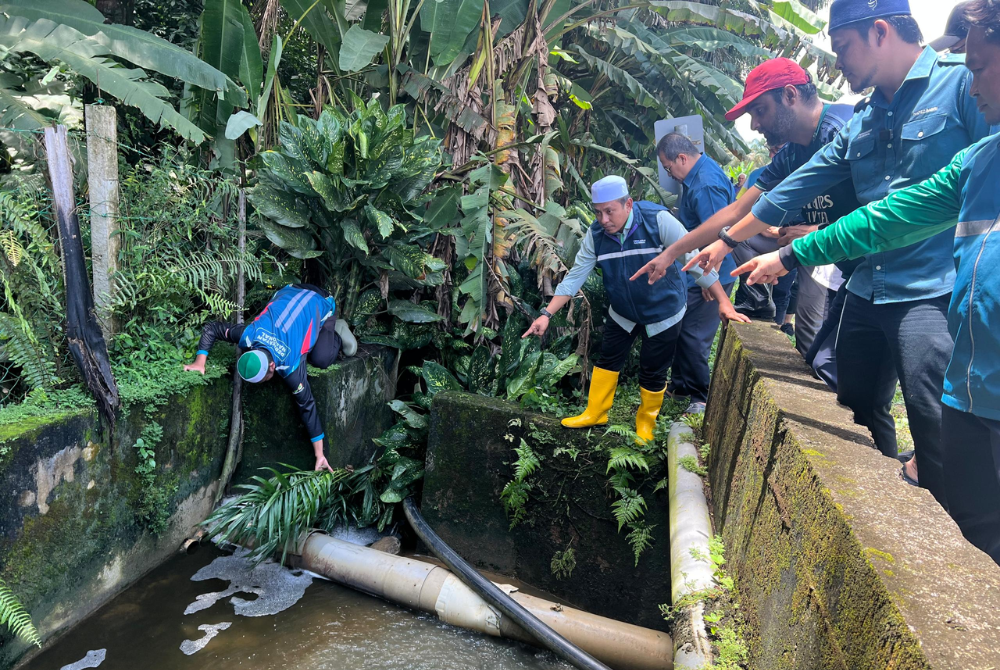TAPAH – Perikatan Nasional (PN) Youth has lodged a police report over alleged sewage discharge from pig farms into Sungai Bidor, reportedly originating from farms in the Ayer Kuning constituency.
Perak PN Youth Secretary Nurhafizul Badrul Hisham has called for an immediate investigation into the farms, which are suspected of releasing waste without complying with environmental regulations.
He also urged the Malaysian Anti-Corruption Commission (MACC) to intervene, citing concerns over possible corruption, abuse of power or bribery related to the issue.
"According to local residents, the issue of pig farm operations, whether legal or illegal, has been ongoing for years. It’s highly unlikely that the Environment Department has not monitored water and odour pollution from these farms,” he said during a press conference outside the Tapah District Police Headquarters (IPD), here, today.
Nurhafizul added that without the ongoing Ayer Kuning by-election, many would still be unaware of this issue.
"This election has shed light on the matter and PN questions why no action has been taken so far,” he said.
The controversy followed claims by Manjoi Assemblyman Hafez Sabri that more than 30 pig farms had operated in the Batang Padang district, some of which he claimed were close to residential areas and mosques.
However, Perak State Executive Councillor A Sivanesan refuted these allegations, clarifying that the nearest farm is 2.57 kilometres from the mosque and 3 kilometres from Kampung Tanjung Keramat.
In response, PN conducted a two-hour site visit in Kampung Poh, Bidor, located near the Ayer Kuning border, accompanied by members of the media.
The visit highlighted concerns that the river flowing through the village, a secondary water source and recreational site for locals, could be affected by the pollution.
Nurhafizul stressed that investigations should be conducted under Section 430 of the Penal Code for causing damage to public waterways used for agriculture, livestock or drinking purposes.
He also pointed to Section 24 of the Environmental Quality Act 1974, which prohibits the release of pollutants into rivers without approval and Section 17 of the MACC Act 2009 for any potential elements of corruption, bribery, or abuse of power that might explain the lack of enforcement actions.


